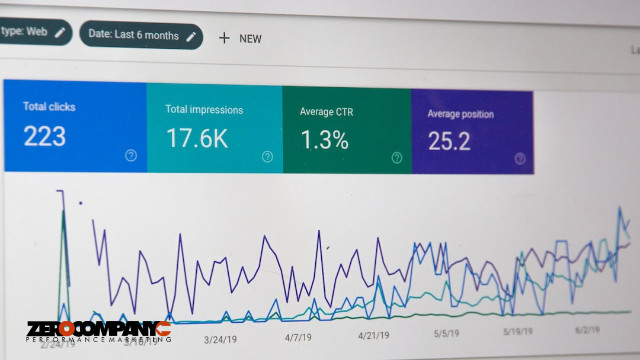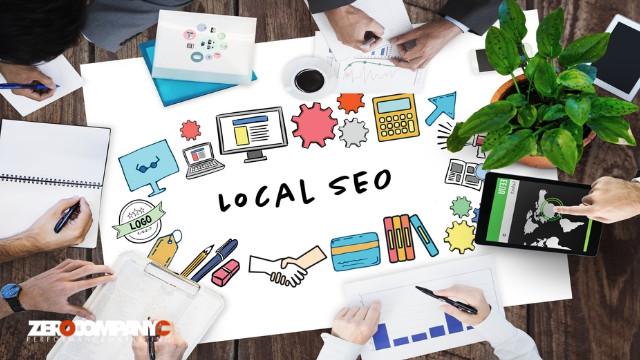Local SEO is very useful to small-to-medium-sized businesses that want to gain new customers in a specific state, city, or neighborhood. For these businesses, ranking high for very broad keywords is usually not the best strategy; rather, it is more important to rank high for local searches.
If you run one of those types of businesses that can benefit from targeting users in a specific area, there are several important ranking factors that you need to know when it comes to local search.
This comprehensive guide will explore the major local search ranking factors (or LSRFs) that can dictate your business’s success in local SEO, along with some local SEO tools you can use.
Table of Contents
Local Search Ranking Factors: First Things First
Before diving into a discussion of those seven main LSRFs, let’s begin with an important note: These factors are believed and/or typically observed by experts in local search engine optimization to influence a website’s rank in local searches. Although these findings are based on theory as well as tangible data, in reality, Google’s algorithms are proprietary and confidential. No one knows exactly what factors influence local SEO rankings or the impact each of them may have.
Second, those same experts have observed that Google has different local search results across different niches, industries, devices, and platforms. For example, certain factors may impact a law firm’s ranking more than it affects a nightclub’s local search ranking. Therefore, it’s best to examine the factors for every specific industry or market rather than expecting the factors to apply to all markets and carry the exact same weights.
Now that that’s clear, there’s plenty of evidence available (which you can find online) that strongly support the importance of these seven major factors in local SEO rankings. Let’s examine each of them.

Why is Local SEO Important For Businesses?
Take a look at these astonishing figures:
- 76% of users who search for something local on their mobile phone end up visiting a store that same day. (source: Google)
- 72% of users who performed a local search visited a store within five miles of their location. (source: HubSpot)
- 46% of all searches done in Google have “local intent.” (source: GoGulf)
- 72% of computer or tablet users and 67% of smartphone users want to see ads that are personalized to their city or zip code. (source: Google)
In short, if you want more people to visit your store (whether online or onsite), you’d want your website to appear at the top results of search engines. Keep reading to learn how you can make that happen.
The 7 Major Types of Local Search Ranking Factors
For clarity and convenience, experts in local search have classified the factors that affect finding local results into these seven major categories:
Crucial Local SEO Factor #1: Google Business Profile Factors
This set of factors includes everything on the Google Business Profile (GBP) except reviews, which fall under a separate category. A Google Business Profile (formerly Google My Business) is one of the most important local SEO tools your business needs if you want to improve your local search ranking. If you haven’t done so, make sure to claim your business’s GBP listing as soon as possible.
The GBP factors that many experts consider most important for improving SEO rankings are these:
- Business Name – Having a complete or partial search phrase in the name of your business may have an influence on your local search rank. For example, if a user searches for “chocolate cake manhattan”, and your business is called Manhattan’s Finest Chocolate Cakes, you may appear higher on Google local results than a business called Pink and Purple Bake Shop.
- NAP – An acronym for Name, Address, Phone Number, these essential information about your business should match exactly what you have listed on your website. They also should form a template for what you will use in other local citations (more on that later).
- Website URL – The web page that you link to in your GBP also may influence your local search ranking. It’s best to link to a page (usually this is the homepage, but it can be any other page on your site) that has gained a lot of good backlinks and has a high domain authority.
- Categories – You may choose up to 10 categories in Google Business Profile. Make sure to select the categories most relevant to your business so that users who search for those categories will have an easier time finding your business in the results. Unlike your business name—which is harder to change—you have greater power over the categories you choose and since it’s limited, make sure to select the most appropriate categories. For example, for a chocolate cake shop in Manhattan, the categories “bakery”, “cake shop”, and “dessert shop” are more appropriate compared to “candy store” and “sweets and dessert buffet”. Make sure to set not just the primary but also the secondary categories for your business.
We also recommend that you provide relevant answers in the “Services” and “Products” sections of your GBP. The number of “check-ins” at your GBP address, as well as shares on social media, are likewise considered important elements of your local search success.
Other elements of your Google Business Profile—such as photos, Q&A, hours of operation, popular times, bookings, etc.—may have less impact on local search ranking but may be essential for your conversions and sales. Thus, it’s important to make sure that those are accurate and optimized as well.
Bottom line: Fill out every available field in your Google Business Profile as completely as possible. Make sure that information about your business and your business’s location in Google Maps is accurate as well.
Crucial Local SEO Factor #2: On-page Factors
This category of factors includes those website elements that help make a website visible in Google’s local as well as organic SEO rankings.
Experts consider these website elements to be most important in finding local results:
- Domain Authority – Often shortened to DA, Domain Authority is a search engine ranking score created by Moz that estimates the likelihood that a website would rank in search engine result pages (or SERPs). A local business online with a high DA has a higher chance of ranking at the top of both organic and local results compared to one with a lower DA.
- Page Authority – Page Authority is similar to Domain Authority but focuses on just one page instead of the entire website. As previously discussed, if your GBP is linked to a web page with a high Page Authority, you may rank higher in local search results.
- NAP – This information about your business (to review, that’s Name, Address, Phone Number) must be displayed on your website and should match the NAP on your Google Business Profile as well as other pages on the web.
- Quality – It also can be beneficial for the search rank of your business online if you regularly publish high-quality content that’s free from errors. You can significantly improve your local organic ranking by optimizing your content for local keywords that follow the format “business service + location” (such as Manhattan chocolate cake”), but you also should target broader keywords like “chocolate cake” and “chocolate cake near me” (these are common examples of mobile searches). Keyword research is a crucial part of digital marketing, including Local SEO, so make sure you do this.
- Optimization – Likewise, it’s important to make sure that your local business’s website’s text, tags, and internal links include the local keywords being searched by your target users. Based on the results of your keyword research, prioritize keywords that have high volume and high relevance to your site. Otherwise, if you focus only on keywords with high volume but low relevance, you can expect a high bounce rate on your website.
- Technical and Security Factors – Finally, you should make sure that your website is secure, mobile-friendly, responsive, and free of malware and other threats and issues. Make sure that essential elements such as the robots.txt configuration and page redirection work well so that Google and other search engines can crawl, index, and trust your site and, as a result, place it higher in their results.
Crucial Local SEO Factor #3: Review Factors
Reviews are submitted by customers who wish to share their experience with your business. Experts believe that Google values three kinds of reviews:
- Google-based reviews – Reviews and star ratings that users write directly on your Google Business Profile
- Third-Party review sites – Reviews that users write on websites like Yelp, as well as professional reviews on sites like Zagat
- First-Party reviews on your site – Reviews and testimonials that you publish on your own website
Additional factors that may affect the impact of your reviews include the following:

- when the reviews were written (more recent ones may have a better impact)
- how often you’re getting new reviews
- presence of text in the review (reviews with text may have more significance than mere star ratings)
- target keywords being used in the review (reviews that mention “Manhattan” or “chocolate cake” will help your rankings on those and related local keywords)
- location of the reviewer (multiple Google reviews from a specific area will increase your rankings in that are)
- the number of websites that you’re receiving reviews on (more may be better)
- the perceived authority of the reviewer (e.g., those written by professional or trusted reviewers, like members of Google Local Guides, may have more impact than reviews written by first-time reviewers or lesser-known people)
Crucial Local SEO Factor #4: Citation Factors
Citations refer to online mentions of your business’s complete or partial NAP. Citations are classified into either structured or unstructured.
Structured citations refer to the formal listings of local businesses on popular websites like Yelp, TripAdvisor, and the like. On the other hand, unstructured citations are mentions of your NAP on news websites, blogs, or any other kind of website that’s not a formal local business directory.
Local search experts believe that Google gives points to both kinds of citations but relies more on structured citations for determining the results of each local search. Regarding citation factors, you need to ensure that your NAP is accurate, updated, and consistent across all websites, including your own. Some experts think that Google prefers seeing “Street” completely spelled out in all your citations rather than seeing “St” in some and “Street” in others. Whatever structure you use for your address in your Google Business Profile (and even in Google Maps), be consistent in using that exact same structure when building out citations.
It also may improve your local search ranking if you have more websites listing your NAP, and if those websites are of higher quality (e.g., have high DA). Websites citing your NAP that are more relevant and specific (rather than general, which cite all kinds of businesses) may likewise give your site a greater chance of ranking higher in local results.
Crucial Local SEO Factor #5: Link Factors
Just like in SEO, links that are used in local search ranking may be either internal or inbound. Internal links lead users from one page of your site to another page that’s still within your domain, while inbound links come from third-party websites and bring people to any of your web pages. Try to get links from credible and authoritative pages such as local news sites or media outlets.
Many local search experts believe that both types of links are important for both organic and local search ranking.
Inbound links from websites with a high Domain Authority or from pages with a high Page Authority are considered more beneficial for your business, and as a result, can result in more people finding your business. The relevance of the sites to your industry, products, or services, and their number and variety are also viewed as crucial factors.
Having more inbound links and more internal links also is regarded as better than having fewer.
Experts also believe that the Link Anchor Text (i.e., the exact words that users click on) also plays a role. For instance, a link that reads “healthy chocolate cake in Manhattan” may help you rank better in local searches compared to a generic link such as “click here.”

Crucial Local SEO Factor #6: Behavioral Factors
Behavioral factors encompass all of the various actions users may take while interacting with your pages and listings. Experts believe that both your organic and local search engine rankings would improve if users act in positive ways that are related to these:
- Click-Through Rate (CTR) – The number of users who click on your linked webpage or listing from the search results
- Clicks-to-Site – The number of users who click on your listing to get to your website
- Dwell Time – The amount of time people spend looking at your linked page or listing
- Clicks-to-Call – The number of users who click on the Call button to contact your listed business phone number
- Clicks-for-Directions – The number of users who click on the Directions button to get driving directions to your listed business address
Other factors besides those listed above may likewise have some impact on your local search rank, such as whether they visit more pages on your website after the original page that was linked to, the bounce rate of your website, and so on. But whether or not those factors affect your rank in local results, it’s still a good idea to optimize those to provide more value and a better user experience.
Crucial Local SEO Factor #7: Personalization Factors
Last but not least, personalization factors include factors that may or may not have any impact on your local ranking. Google has said that they don’t do a lot of customization of general results according to each user’s search history. However, there appears to be an exception: user location.
People’s location at the time they perform a Google search is seen to greatly influence the results they get. Often called “user-to-business proximity” or simply “distance,” this is actually one of the most evident local search ranking factors. Businesses that are relevant to the keywords searched by a user are shown, but businesses that are located closer to the user are given a higher ranking than those that are a bit farther.
Try it for yourself: Search for a specific product or service in different parts of the city and you’ll receive different local and organic results based on your mobile device’s location. This also is observed in desktop-based searches.
Bonus Info: Factors That Can Negatively Affect Your Local SEO Rank
Now that you know which factors you need to take into account if you want your local business to be seen by more users in your serviced area, you also need to know which ones may harm your local search rank.
Since the Google Business Profile is one of the most crucial factors that determine a site’s local search rank, it should not be surprising that violating its Guidelines can bring down your ranking. In worst-case scenarios, it may even lead to your listing being taken down. To avoid these, make sure you don’t set up listings for invalid locations or stuff your business name with keywords.
Make sure that your online reviews are genuinely written and published by your actual customers. To help increase both the quantity and quality of your online ratings, focus on delivering excellent customer service. This includes responding calmly and politely to negative reviews that unsatisfied or disgruntled customers have posted. Ideally, try to respond to all reviews – whether positive or negative. Thanking those who leave positive reviews fosters goodwill and makes any responses to negative reviews seem less defensive.
Publish high-quality content regularly to help improve both your organic and local SEO rankings. In addition, always make sure that your website has security protocols in place to avoid hackers, malware, and other security risks.
Finally, scour the web for mentions of your NAP. Make sure that your business name, address, and phone number are updated and consistent on different websites.
Key Takeaways on The Crucial Local Search Ranking Factors
Just as Google’s algorithms are ever-changing, so too can we expect the factors that affect local search ranking results to keep evolving. In fact, many experts estimate that Google updates its search algorithm approximately 500 to 600 times per year—that’s as often as twice per day!
The vast majority of those changes don’t have a major effect on search results but some can have dramatic effects that businesses need to be aware of. Because of this, most businesses find it hard to keep up, both in terms of knowing important things that affect their rank in search results as well as implementing changes to ensure that their website gets an optimal position in SERPs.
If your business is struggling to keep up with local ranking factors and stay on top of Google search results, Zero Company can be of great help. We are a trusted digital marketing agency with more than 20 years of excellent track record in helping small- to medium-sized businesses with local SEO to get the best results from their online marketing efforts.
Book a free consultation today with our team of local SEO experts who can boost your website’s local search ranking on Google and other search engines!







